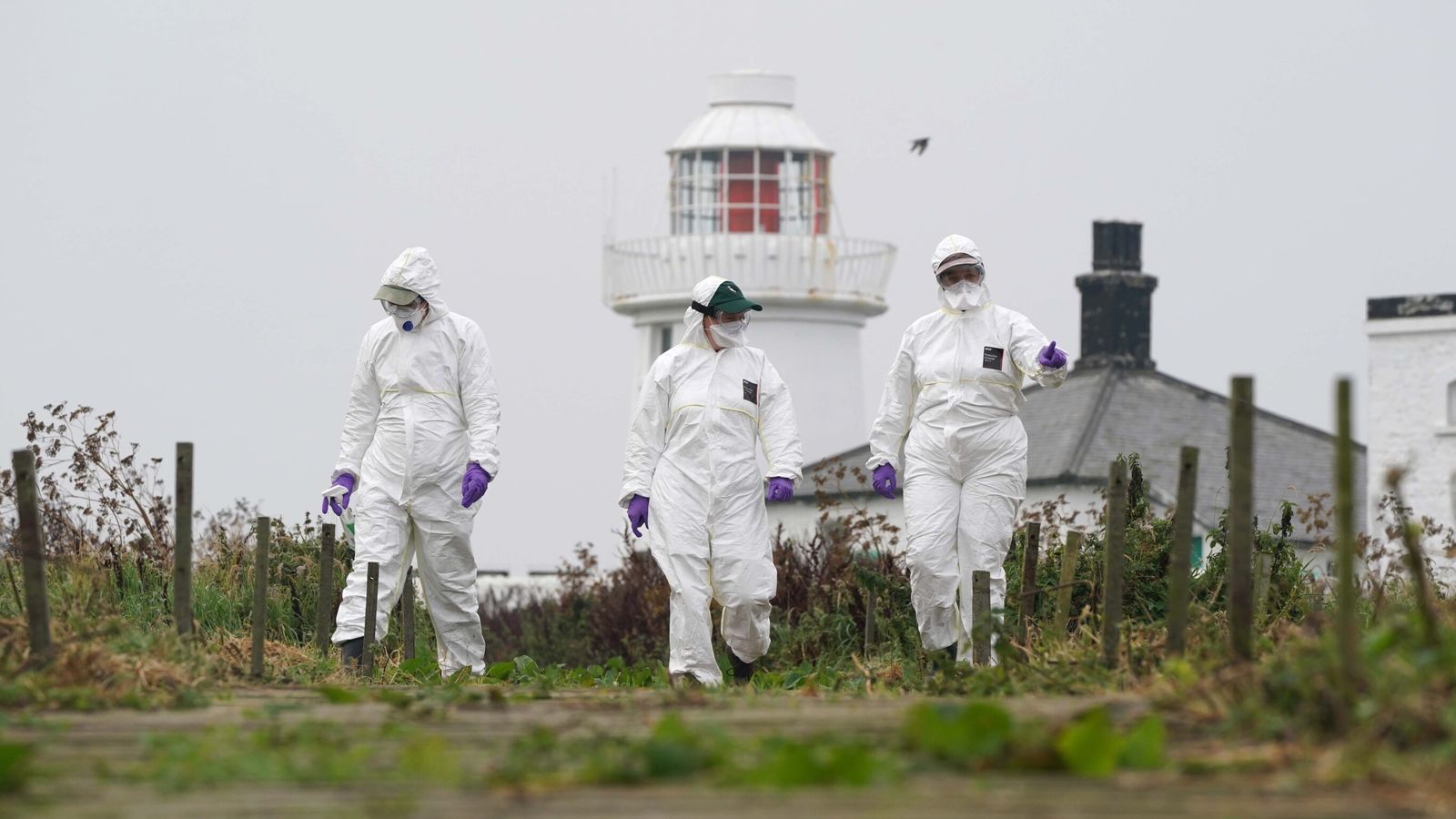An “extremely worrying” bird flu outbreak has killed over 7,000 seabirds across multiple precious UK colonies this year, the National Trust has said.
A significant number of chicks have been killed by the disease at Long Nanny, on the Northumberland coast, with further concern over the impact on breeding populations.
Long Nanny, which is home to Britain’s largest mainland colony of Arctic terns, is among a number of coastal areas hit.
Bird colonies on the Farne Islands, off the Northumberland coast, Cemlyn in Anglesey, north Wales, Brownsea off the south coast of Dorset, the Pembrokeshire coast in south Wales, as well as parts of the east and north coasts of Northern Ireland are also affected.
UK chief vet Christine Middlemiss said: “We recognise that the current outbreak of highly pathogenic avian influenza poses a significant threat to the UK’s wild bird populations and share the concerns about the impact on breeding populations, particularly seabirds that nest closely in large numbers.”
James Porteus, area ranger at Long Nanny, has said the impact is “heartbreaking”.
“We started to see birds showing signs of the disease in late June and it was absolutely heartbreaking to witness so many birds, particularly Arctic tern chicks, succumb to the disease.”
Mystery continues over deaths of more than 3,500 birds on Aberdeenshire coast amid suspected avian flu outbreak
Owners urged to keep pets indoors during deadly bird flu outbreak in Poland
Aberdeenshire: More than 1,000 seabirds dead in suspected avian flu outbreak in Scotland
“At least 8% of the breeding population of Arctic tern adults died this season, along with roughly 40% of the Arctic tern chicks.
“This is extremely worrying, especially when you consider that these fragile seabirds are already having to deal with a whole host of other challenges including the impacts of climate change and extreme high tides wiping out nests at critical times during the breeding season,” he added.
In Cemlyn in Wales, over 1,200 dead birds have been collected, 771 of which were Sandwich Terns.
Birds washing up on beaches
Hundreds of dead birds are also reported to be washing up on beaches on the Pembrokeshire coast.
While on Brownsea Island in Dorset, 650 birds have died, the vast majority of which are chicks or juveniles.
In Northern Island, National Trust rangers said they had collected 21 dead common terns from Cockle Island, a breeding colony just off the coast.
The Farne Islands off the Northumberland coast has also seen the loss of thousands of birds this year.
Read more on Sky News:
Mystery continues over deaths of more than 3,500 birds
Owners urged to keep pets indoors during deadly bird flu outbreak
However, the number has dropped significantly when compared to 2022 when an outbreak ripped through the islands, killing 6,000 birds.
The National Trust attributes the drop in number in part to the closure of the islands to visitors.
Rangers have also been removing the carcasses of dead birds to stop the disease from spreading
Harriet Reid, area ranger on the Farne Islands, which are looked after by the National Trust, said: “As soon as we became aware of the presence of avian flu within the bird population, we did everything possible to restrict the spread of the disease and closed the island to visitors.
“This meant less disturbance for the vulnerable colonies, and we took the decision to pick up dead birds to try and counter the spread of the disease.
“Removing the seabirds as soon as we find them, does seem to have made a difference – the number of dead birds picked up on the islands is down by 39% on last year – but we need to rapidly understand what more we can do to protect these precious seabirds.”








